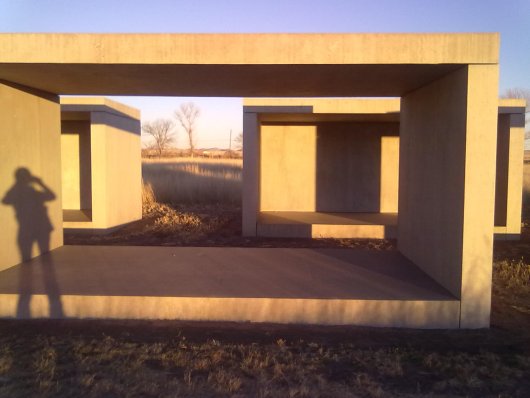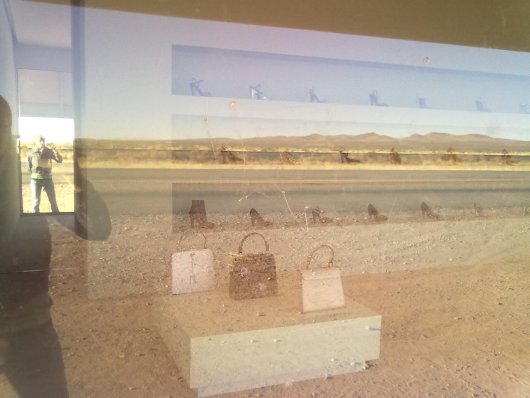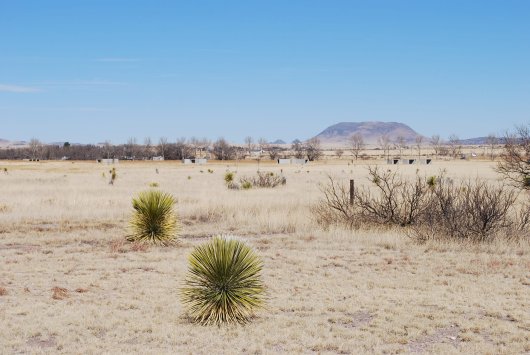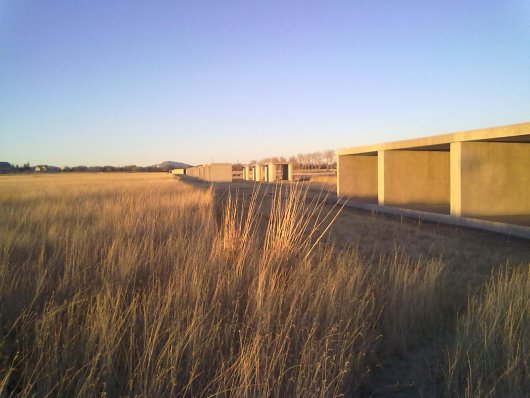 PRINT
PRINT In Which We Flee The Masters
 Friday, March 8, 2013 at 10:37AM
Friday, March 8, 2013 at 10:37AM 
Savoir Faire
by MICAH RUELLE
“This is an artificial environment,” the professor told the class. “Generally, you all work alone — most writers have to. It’s unnatural to shove all of you in a classroom and have you work together for three years.”
This sentiment has acted as the premise of an argument against Master of Fine Arts Programs. It follows that fine art programs might force incompatible writers (unlike the Beats or The Inklings) into murky waters, diluting individual talent. The romantic in me couldn’t help it, though; I looked around the room at the faces of poets I was sure to see in nearly every class for the next three years.
But I was wrong. I wouldn’t be looking at those faces for the next three years. Two months ago, I left an MFA program in southwest Texas — and no, not for the sentiments above, or for the politicized reasons that Franz Wright and others have against graduate level fine arts programs. I left for “personal reasons” according to all my recent applications to entry-level and retail jobs. A month before starting the MFA, I had just finished a year of intense theological studies in the U.K. and was burnt out before I even started an equally intense course.
I signed my letter of resignation and finally began the break I needed. Christmas break proved to be a reflective time. My thoughts returned to the program — the various writers’ readings, literary magazine meetings, workshops, parties, and dinners. The longer I thought about it, the more I came to realize I had been uncomfortable for most of the program, but I wasn’t sure why. Over the next few weeks, I’d run on the trails by my parents’ house in Kansas. I’d been running the same paths for years, on and off in between school breaks and summers. The familiarity allowed me a safe space to process.
A week or so of running had gone by when I finally narrowed it in: my social dynamics with the writers was nothing like those that I had had with my friends from undergrad, nothing like the other non-profit workers I had assisted, nothing like the theologians I had trained with, nothing like the painters I had lived with, and nothing like my childhood friends from my hometown. My relationship with the writers bordered on enigmatic, but with enough banality during the academic work week to hold the levee.

“Saving face” is a term that is used both in the U.S. and the U.K. For Americans, it’s a term used to reference the act of trying to preserve pride or the pride of others in the heat of a humiliating moment. But the British seem to have a more all-encompassing use of the phrase. For them, it does reference maintaining dignity in embarrassing moments, but it’s also a particular stance or attitude toward social circumstances in general. If you’ve watched any Downton Abbey or have read any Jane Austen, you can see how “saving face” is embedded in social interactions between characters: Mr. Bates concealing the bullying he endures by the house staff in season one, or the secrecy that Darcy preserves until the accusations against his character are made by Elizabeth. The characters that are able to absorb and conceal information are likely to do well in their lives in general, and seems to be an essential quality to earning the trust and respect of others. Perhaps I had witnessed more examples of “saving face” than I had realized prior to starting a masters program, but it seemed to saturate every social circumstance I had found myself in with the writers.
During one of the first MFA parties I attended, I drank too much because I was nervous and like a stupid minor, locked myself in a bathroom till I could sober enough to conserve an ounce of dignity to rejoin the party. When a fellow poet found me, I apparently instructed them that despite whatever state I was in, I was not to be left in the same room as a certain individual, a predatory-looking fiction writer.
My friend later told me that he used our exchange for a poem in his thesis and, “hoped it was okay.” I nodded, and felt weirdly flattered. At least I was disguised as an animal. However, I didn’t begin to question the ethical complications of using real-life material from genuine relationships and transferring it to art until I read my own words on the page of someone else’s poem. I had been quoted while on the phone during a very vulnerable confession in the midst of a panic attack that had long been warming in my consciousness and had finally erupted. At least the quotes weren’t cited. (Ironic, no?)

The social dynamics between all of us felt odd enough. At parties, what could’ve been simple questions and general musings felt like a continual set-up to gather more information. It’s only when you are speaking with a poet or writer that you can doubt the motives when they ask you, “Can I see your room?” It could be a pass. But, for all you know they are cataloging items, a color palette, and essence of a living space for a potential character. For the record, in both interpretations, I advise the answer to that question be “no.”
To the former situation, you need only read a little of Sylvia Plath’s bio to begin to see that romantic relationships have trouble surviving the battle of writerly egos. (Also, see the marriages of Hemingway and Gellhorn, along with Fitzgerald and Sayre.) Not to mention the running tagline, never directly expressed, but understood: the MFA is where women go to get divorced, and where men go after they’re married.
As for the latter, the creation of a private space is essential for sanity since the writing will continue to oust you in workshops. Preserving a space is, more than anything else, an act of self-preservation. Once, a few years ago, I had visited an author’s home. He had placed a baby-gate between a room and the dining room. When I was about to climb the gate that I assumed was for his kids, he gently stopped me and said, “I’m sorry — I don’t let anyone in my writing space.” It’s a view that, as eccentric as it sounds, I am beginning to understand. The need for a physical and mental space that was mine, that I could measure somehow, never felt more necessary to construct.
Herein lies the complexity of an MFA program: writers extract ideas for characters, situations, dialogues, experiences, etc. from real life to inform (consciously or unconsciously) the creative process of making their art. While out in public, writers can observe and take mental notes anonymously and discreetly. However, when writers are amongst each other, the carnivorous pursuit for raw-life material can be sensed during exchanges after workshops, at parties, and before and after readings. Writers understand that they are watching and being watched, and in an MFA, this experience is looped. Artists understand that their lives are free game to other artists, which means that we are all in the line of fire of having our quirks, speech patterns, facial expressions, and behavior converted and used for someone else’s art.
It’s not all bad though. I know I am making us all out to be a brood of vipers. And we’re not. Well, not all the time, anyway. After you have just sent your writing to the workshop slaughterhouse, they’ll offer profound feedback, usually accompanied by a beer. And it’s not limited to hard times, either. One of the most profound moments of my life occurred rather inconspicuously at MFA Halloween party this last year.

The hosts had been generous, constructing Martha Stewart inspired creepy-crawly snacks and concocting an alcoholic punch that almost glowed in the red hues of the lights. Nearly all the guests came in full-costume and a six-pack. If you had driven by the house, you would’ve spotted a cowboy, Wonder Woman, and Annie Hall all smoking on the porch while an intoxicated Bumble Bee stumbled up the steps. Since my Stepford wife dress proved defenseless to the cold, I camped out with Ke$ha and the cat on the couch to keep warm. I was just starting to unwind from all the hype and was standing in line to use the restroom when a very sloshed Buddy Holly found me. Prior to that evening, I could only account for one moment when this friend had been vulnerable with me, despite sharing classes and free time on the weekends. So it came as a surprise when he put his hand on my shoulder, and gave me one of the most profound compliments I have ever received about my work. It is one of the few compliments I have accepted fully, as an almost-prophesy. And it has since acted as a source of encouragement as I continue to work independently.
Despite my reservations, I hope one day be able to reenter an MFA program when I feel ready. But, what I miss already is the thrill of being amongst people that love — foolishly perhaps — but completely, the same thing I do. One night at a party, a writer pulled a book of e.e. cummings off the shelf and after the first poem was read aloud - we were all clapping and screaming for more. I’ve yet to see this happen during an art gallery, university, or bookstore reading. Where is all that joy hiding?
A week before Christmas, I got a whiff of what my life would be like post MFA when visiting a bookstore with a friend I had known since junior high. The 2012 Best American Essays was on display, and in my excitement said, “Hey, maybe I should buy it for my dad.” She laughed and said, “Who would want that?” I was surprised. My friend is a knowledgeable person, and someone who supports the arts. She, herself is an artist - a painter who studied art in college. After the initial surprise, I felt a sudden sadness wash over me. It hit me that my social circle had been small, and that there had been a familiarity in it. We had been a bunch of loners, grouped together artificially — maybe more like a pack of sardines than any kind of family, but it had been dysfunctional and strangely nice. I had been one of ten other people who would’ve at least entertained the thought, and maybe would’ve leaned over to me to say, “Yeah, a book of essays is a great idea.”
Micah Ruelle is a contributor to This Recording. She is a writer living in Austin. This is her first appearance in these pages. You can find her tumblr here.
Photographs by the author.

"The Next Day" - David Bowie (mp3)

 kansas,
kansas,  micah ruelle,
micah ruelle,  texas
texas 










































